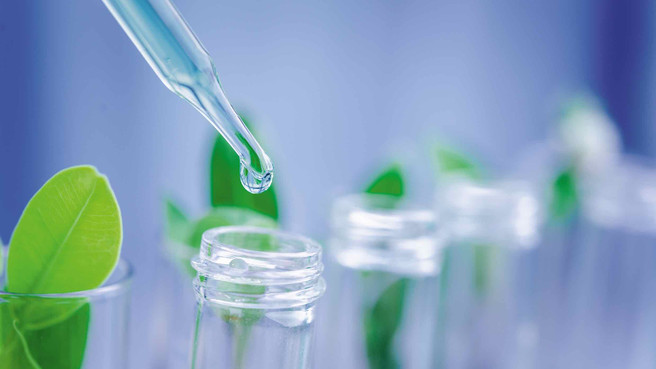Press release
This year’s trade fair appearance by cooling lubricant manufacturer Oemeta Chemische Werke at the AMB is focused on sustainability. In addition to the water-miscible ESTRAMET S 77 cooling lubricant for demanding machining and the mineral-oil-free, ester-based HYCUT system, the two digital innovations logyc software and logyclab provide fluid management and monitoring for the use of cooling lubricants. All in all, this underscores the manufacturer’s sustainability offensive. With its orientation towards the UN’s 17 Sustainable Development Goals, Oemeta is taking on a responsible leadership role in the development and production of cooling lubricants.
“The orientation of all activities towards greater sustainability has become a structured project that is particularly important to us, so we're pursuing it with meticulous care,” says Agnes Waterstrat, Division Manager Marketing and Sales National at Oemeta Chemische Werke GmbH. This also provides the context for the innovations the manufacturer is exhibiting at the AMB. First and foremost, two digital innovations for fluid management and monitoring in the use of cooling lubricants show how transparency, information and analyses can enhance processes and significantly extend the service life of cooling lubricants and tools. With the logyc software and logyclab, users have both a flexible, cloud-based control tool and a control unit for automated analyses of cooling lubricants, hydraulic oils and other industrial fluids in machining production. After all, in order to work efficiently and sustainably in machining processes in the long term, it is crucial to keep a constant eye on the condition of the cooling lubricants and fluids – whether the machining involves turning, milling, drilling or grinding. The fluids have to be measured and analysed on a regular basis.
Logyc software provides transparency and advice.
The cloud-based software manages all relevant data relating to cooling lubricants, hydraulic fluids, washing media or other fluids used in machining processes. It enables measurement data to be entered centrally or via mobile devices, the status of the process media can be queried and any required service measures for the maintenance of all fluids can be planned. This means that process managers can identify any weak points in the system at a glance before quickly and easily initiating the necessary measures for the maintenance of the cooling lubricants and process media.
Logyclab – automated digital monitoring.
The logyclab digital monitoring unit automatically analyses cooling lubricants and other fluids used in machining processes – regardless of the brand and manufacturer of the liquids. The pH value, conductivity and concentration of cooling lubricants can be recorded, for example. All measurement data is transferred to internal or external databases and is available for further analysis. Logyclab can be individually configured and adjusted to the analyses required in each case. Communication is either carried out directly at the machine or else drawing on external databases via LAN or wireless LAN. The automated collection of measurement data eliminates the often tedious task of manual collection.
Product design contributes to greater sustainability.
ESTRAMET S77 demonstrates that the top cooling lubricants have impressive qualities when it comes to sustainability, too: it is a mineral oil-free, water-miscible cooling lubricant made from synthetic ester oils. Developed for demanding machining processes, it shows its strengths particularly when used with high-alloy steels as well as aluminium and titanium alloys. This powerful and persistent MWF is free of mineral oil, boron and formaldehyde as well as fungicide and active sulphur. The fact that it greatly improves process quality and tool life while ensuring almost unbelievable performance has been confirmed by an independent test authority.
The oils of the HYCUT system are also ester-based – this in itself is sustainable. The products are compatible with each other as machining oils, cooling lubricants and cleaners, so they can save on intermediate cleaning processes, for example. For example: a crankshaft manufacturer saves three intermediate cleaners that would have had to be installed along with the conventional media. Not only does this significantly reduce investment costs, it also saves water and disposal costs.


